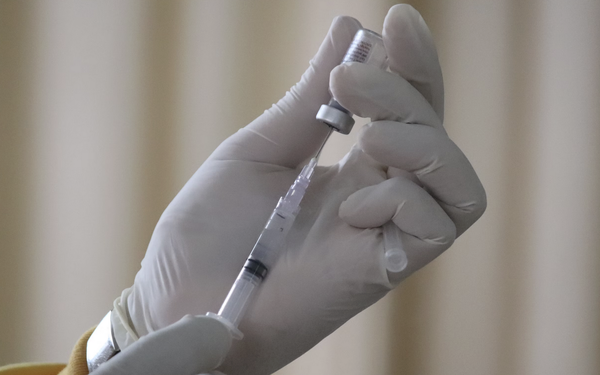
“Thanks to your company’s
work and Pfizer too, you guys saved the world,” Ted Tenthhoff, senior biotech analyst at Piper Sandler, told Stéphane Bancel, CEO of Moderna, at the former’s 36th Annual
Healthcare Conference last week, referring to COVID-19 vaccinations. “I don’t know how we all of a sudden became the bad guys.”
Some would blame it on such anti-vax crusaders
as Robert F. Kennedy Jr., chosen by incoming President Trump to be the next head of Health and Human Services, who once called the COVID-19 vaccine “the deadliest vaccine ever made.”
Yet, asked directly by Tenthoff about dealing with a “potentially hostile HHS,” Bancel wouldn’t take the bait.
“The rhetoric around RFK has been about making America
healthy again, which I’m all for,” the CEO declared while noting -- in what has become standard pharma industry rhetoric since Nov. 5 -- that Moderna has worked well with both
Republican and Democratic administrations.
advertisement
advertisement
But Moderna, perhaps the world’s only pureplay vaccination company, does owe a particular debt to the first Trump administration, whose
Operation Warp Speed in vaccine-friendlier times helped jump-start the company’s very first product.
That COVID-19 vaccine was joined earlier this year by a second product -- for
RSV -- with three more vaccines expected in 2025, and another five by 2028.
One of the 2025 intros will be a next-Gen COVID vaccine, which Bancel said would particularly target the 65+
population, akin to the senior flu vaccine.
Another is an RSV vaccine for 18- to 59-year-olds, which Lavina Talukdar, Moderna’s senior vice president-head of investor relations, called a
“positioning opportunity” at the 7th Annual Evercore HealthCONx Conference, also held last week. Down the road, she added, the RSV market can increase sizably once revaccination
recommendations come out. The vaccine is currently given on a one-and-done basis.

The third expected approval in 2025 is a combo flu/COVID vaccine, to
be offered first for older adults. This will be “really important because COVID is the number one respiratory killer in the U.S., flu is number two,” Bancel said. Yet, explained Talukdar,
“150 million people get flu vaccines in the U.S., but roughly only 50 million COVID. The combination offers compliance with both. You’re trying to piggyback off the flu to bring up COVID
vaccination rates.”
An advantage for Moderna versus other flu (and COVID) shots, she added: its technology allows for vaccine production some two months prior to flu season as opposed to
six to nine months out, thus covering the latest variants.
Coming after 2025, Moderna hopes to have a vaccine for CMV, a latent virus, which Bancel defined as “once in your body,
it’s in your body forever.”
Among other symptoms, he said, CMV is the number one cause of birth defects, affecting 20,000 children annually.
Thus, “we [will be]
vaccinating women of childbearing age in the first indication,” Talukdar noted.
Then will come “universal vaccination for adolescents" -- or younger.
A 20-year campaign on
CMV for newborns, Bancel said, would “eradicate CMV, like rubella was eradicated.”
Beg pardon here, but rubella (or measles) hasn’t been completely eradicated, especially
with increasing numbers of Americans refusing to get their kids vaccinated, thanks to disinformation. There was also a deadly outbreak five years ago in Samoa which officials there attributef to an
anti-vax campaign fueled by a visit from RFK Jr.
Bancel and Tenthhoff ran out of time before they could discuss other vaccines in Moderna’s pipeline, but Talukdar got to them in her
discussion.
One is for the norovirus (often referred to as the “stomach flu”), which like flu and COVID comes in different variants annually, meaning a possibility for annual shots
and/or boosters.
The vaccine would be targeted to older people, those with occupational risks like working in healthcare – and those with “lifestyle risk,” like cruise ship
passengers, Talukdar said. “Adding all these populations together, we estimate about 155 million people would be eligible for this vaccine.”
Then, there’s cancer, in
particular melanoma, with a vaccine being tested in trials run with Merck, maker of the cancer treatment drug Keytruda. Other cancer trials include vaccines for non-small cell lung cancer, bladder
cancer and kidney cancer.
“Our strategy is to have the largest portfolio of vaccines that we can offer,” Talukdar said, “because that should give us a competitive advantage
in positioning all of our vaccines, both on price as well as market share.”